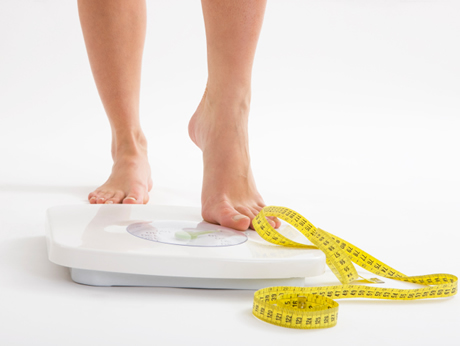
13 Oct Your “Ideal Weight'”: It May Not Be What You Think
Thought it might be important way before the holiday season to, um, weigh in on Jennifer Rollin, MSW, LCSW-C & contributor to the Huffington Post. Her most recent blog is about “Your ‘Ideal’ Weight Isn’t What You Think.” Read before you start obsessing about an extra piece of pumpkin pie.

Many people have this idea in their heads of a number that they consider to be their “ideal weight.”
So where do they get this from? Some look at the body mass index charts, which were created about 200 years ago by Lambert Quetelent (a mathematician, NOT a physician) as a way to categorize people for his research and were never meant to be an indicator of health. Also, fun fact in the 1990’s a bunch of Americans went to bed and woke up “overweight.” Their body size hadn’t changed-however against recommendations from The World Health Organization, an “obesity task force” (which was funded by the makers of a weight-loss drug) decided to lower the BMI. The reality is that BMI really tells you nothing about someone’s health or behaviors.
Some look at their weight back in high school (i’m pretty sure we aren’t all meant to have our “high school bodies” forever, bodies are meant to change as we age). Others just arbitrarily pick a number that “sounds good” to them.
Here’s the thing. Our bodies don’t read magazines, scroll through social media, or care about arbitrary clothing sizes. Biologically, we all have a set point weight range (typically between 10-20 pounds) that our bodies will fight to maintain. Our set point weight is largely based on genetics. The same way some people are tall and short. Some people are naturally larger or smaller.
We live in a culture that currently deems that “smaller” is “better” and “more attractive,” and there is often stigma towards people in larger bodies. However, this is completely a cultural construction. There are other cultures around the world where people in larger bodies are celebrated, and women actively try to gain as much weight as possible.
Your Ideal Weight Isn’t What You Think
The problem is that so many people are trying to suppress their weight below their natural set-point weight. Typically this is a pretty fruitless effort as research shows that 95 to 97 percent of people who diet, will lose weight, and then gain it back in a 1-3 year period (and sometimes go on to gain more).
However, let’s say that you are of the small percentage of people that is “successful” in suppressing your natural weight. Often those people have to spend the majority of their time obsessed with exercise, food, and their bodies. When you think about it, that’s a very large price to pay. It reminds me of a quote that I love, which says, “Don’t miss out on 95% of your life to weight 5% less.”
How to Find Your Ideal Weight
Your ideal weight is whatever weight you reach, when you are mindfully nourishing yourself with food and movement that you actually enjoy, and fulling engaging in your life.
Here are a few things that could help you to determine if you have a healthy relationship to food and your body:
- I generally listen to and honor my hunger and fullness cues.
- I eat food that I enjoy and that are satisfying to me
- I engage in some form of joyful movement
- I don’t let the number on the scale, dictate how much I eat or exercise.
- I don’t engage in crash diets.
- I have other ways to process and cope with my emotions, than always turning to food.
- I am able to eat a wide variety of foods.
- I can go out to eat without anxiety.
- I don’t feel guilt or shame regarding things that I eat…


Sorry, the comment form is closed at this time.